DHDD Newsletter – September 2022
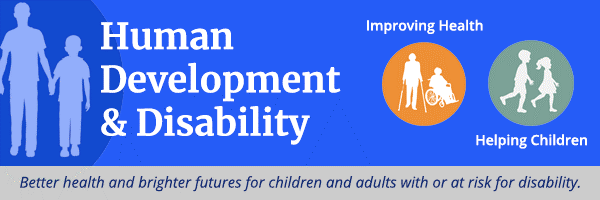
A Note from the Acting DHDD Director
Dear DHDD Partners,
As Acting DHDD Director, I have been impressed by the work of our staff and partners. This month, I would like to highlight a couple examples of the incredible work being done every day to promote the health and well-being of people with disabilities.
CDC’s “Learn the Signs. Act Early.” (LTSAE) program is excited to welcome 14 new Act Early Ambassadors and 44 returning Ambassadors to its 2022-2024 Act Early Ambassador cohort! The LTSAE program held its Annual Act Early Ambassador training in Georgia this month to introduce its newest cohort, which consists of 58 Ambassadors nationwide. CDC’s Act Early Ambassadors work to integrate family-engaged developmental monitoring into programs and systems that serve families with young children.
Our partners at @AUCDNews shared their support for our Ambassadors during this month’s training event. Dr. Karen Remley, NCBDDD’s Director, also attended the event and highlighted the importance of helping children live to their fullest potential by understanding developmental delays and disabilities and promoting early identification.
On September 19, Dr. Remley also joined DHDD’s Cathy Rice, PhD, branch chief of DHDD’s Disability and Health Promotion Branch, to attend The 2022 Global Golisano Health Leadership Awards (GHLA) ceremony. This event was hosted by Special Olympics and the Golisano Foundation at the New York Public Library to honor global leaders and organizations advancing inclusive health opportunities for people with intellectual and developmental disabilities worldwide. We were thrilled to recognize these inspirational champions and to support the collaboration between CDC and Special Olympics.
Thank you to all our partners and staff for your continued collaboration during this time of change. As DHDD leadership transitions, we hope to be able to announce a new director soon. One thing remains the same – our shared mission to enhance the lives of people with disabilities. We look forward to the continued impact that we can achieve only through our collective efforts.
Best,
Carlinda
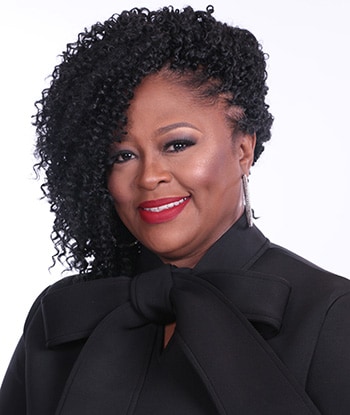
Carlinda Nelson, Acting DHDD Director
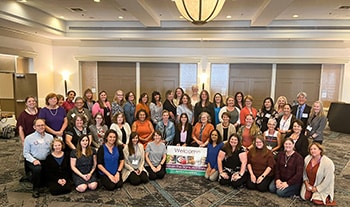
The 2022-2024 Act Early Ambassador cohort at the annual training in Georgia.
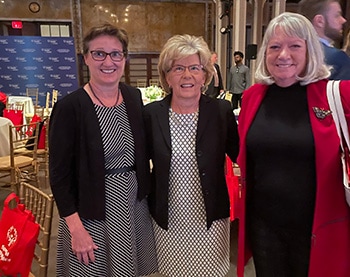
Left to right: Cathy Rice (DHDD), Anne Williams (Special Olympics), Karen Remley (NCBDDD) at The 2022 Global GHLA ceremony.
In the Spotlight
Quarterly DHDD Partner Meeting
Save the Date! DHDD invites you to a virtual partner meeting on October 19, 1 – 2pm ET
Agenda and relevant materials will be sent before the meeting.
If you have topics you would like to discuss, including topics about your organization’s work or questions for DHDD, please email sarah.lewis@cdc.gov by September 30.

National Preparedness Month
Keeping Children Safe
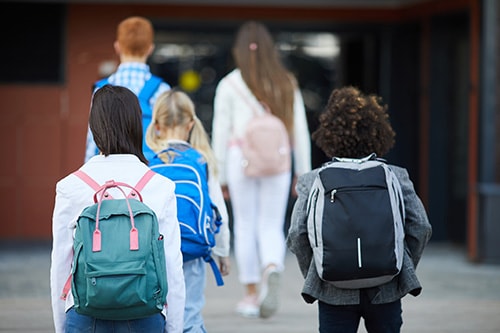
School is back in session! As you stock up on pencils, take first-day pictures, and adjust to new bus schedules, take a few, quick steps that can keep your child safer during an emergency.
Transitioning back to early childhood programs or school— or starting them for the first time—can create extra challenges, particularly in times of stress. Learn what parents and teachers can do to help children make a successful transition to in-person learning and care.
Funding Announcements
Addressing Needs of People with Disabilities in COVID-19 Local Preparedness Planning, Mitigation and Recovery Efforts
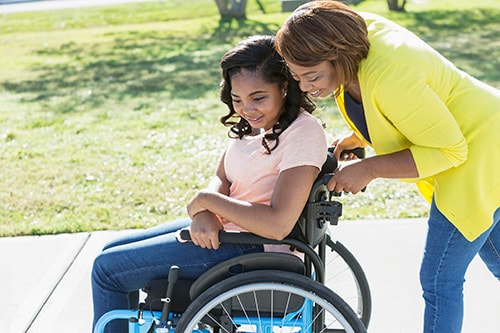
With support from CDC’s Division of Human Development and Disability, the National Association of County and City Health Officials (NACCHO) is offering a funding opportunity for local health departments to address the needs of people with disabilities in emergency preparedness, including COVID-19 planning, mitigation, and recovery efforts. Approximately 12 awards and $75,000 per award are available. Information about the funding opportunity, including project activities, goals, and application process, is available on the NACCHO website.
NACCHO will host an optional informational webinar for potential applicants on October 4 at 2:00 pm ET. Proposals are due Friday, October 21 at 11:59 pm PT and selections will be announced the week of October 31.
This is an extension of a project previously funded by CDC to ensure the inclusion of people with disabilities in state, territorial, and local health department preparedness and response efforts.
CDC Funding Will Establish a Disability and Health Data Collaborative
CDC has awarded supplemental funding to New York University (NYU) Grossman School of Medicine to implement a multi-site research study and establish a framework for a Disability and Health Data Collaborative. This project, entitled Disability and Health Data Collaborative: Using Data to Promote the Health and Wellness of People with Disabilities, will use state Medicaid data and data linkages to better characterize and evaluate the health and wellness of people with intellectual and developmental disabilities. The project will begin on September 30, 2022 and continue for two years.
NYU Grossman School of Medicine is a Prevention Research Center currently funded under CDC RFA-DP-19-001 to conduct Special Interest Projects to design, test, evaluate, disseminate, and translate effective, applied public health prevention research in the United States. NYU Grossman School of Medicine was awarded $479,989 for this supplement.
Publications
Inclusive and Accessible Communications: Best Practices and Lessons Learned from the COVID-19 Pandemic
A special issue of Assistive Technology Outcomes and Benefits features best practices in the development and dissemination of inclusive and accessible communications during the COVID-19 pandemic. This issue features a communications initiative funded by the CDC Foundation and perspectives from industry, academia, and the field, including:
- “Closing the Information Gap: Making COVID-19 Information Accessible for People with Disabilities” discusses the development and dissemination of COVID-19 information in braille, American Sign Language, easy-read, and other formats, as well as additional tools and trainings. Lessons learned include involving partners and people with disabilities in project development and implementation, adapting materials development in a rapidly changing context, and providing additional training to health communicators and public health practitioners.
- ‘“Include Me”: Implementing Inclusive and Accessible Communication in Public Health’ describes the planning and delivery of inclusive and accessible scientific presentations for a Centers for Disease Control and Prevention Public Health Grand Rounds event. Lessons learned include working with partner organizations and colleagues who can model inclusive practices; including people with disabilities at every phase of program planning, implementation, and evaluation; and influencing systems to be more inclusive.

